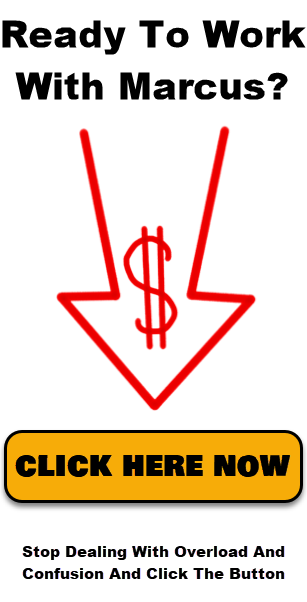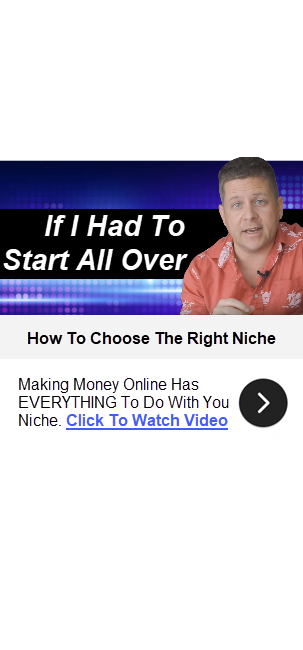Youtuber Lawsuit $1,000,000,000 Finance Guru Crackdown?
It’s named as one of the biggest YouTuber lawsuits ever, only everyone talking about it seems to be missing the biggest part. So you got YouTubers like Meet Kevin, Graham Stephan, Andrei Jikh, Tom Nash, Creators Agency, and countless others named in this lawsuit claiming that they allegedly promoted FTX, a now-defunct crypto platform.
So this begs the question, is every YouTuber on the hook for everything they promote? Well, I think we need to dive deeper into this lawsuit to figure out what it’s actually about and spoiler alert, it’s not what you think.
Actually, this reminds me a lot of the old affiliate marketing adage that says you need to disclose that you’re an affiliate. This came out a few years ago when influencers and marketers were just shilling every product, acting as if they tried the product, love the product, but didn’t disclose that they were an affiliate.
Yeah, you have to tell people if you’re getting paid to promote a product, and that’s actually what this lawsuit is all about. As you can see right here on page two, “Defendants did not disclose the nature or scope of their sponsorship and/or endorsement deals.” This is important because there’s several different types of sponsorships that can be done on a YouTube video and, yes, some of these can land you in hot water.
The first are the in-video ads. These are the ads that show up on the video where you get paid when YouTube shows an ad before, after, or during your video. Think of these like TV commercials. A TV producer is not responsible for the content of the commercials because they’re not exactly endorsing the products they’re in. Everybody knows that those advertisers are simply paying for space to be seen when the TV show is on the air.
The next method YouTubers use to make lots of money is known as sponsorships. This is where a sponsor wants to pay you to be shown in their video. Now, while in-video ads are automatically triggered by the YouTube algorithm and the Google AdSense platform, sponsors actually come to us as YouTube creators and tell us to make a sponsored video or a spot in our video where we’re talking about a product. This is where we start getting into the gray area because it’s up to us as content creators to disclose that the sponsor paid us.
But why is this important? Well, think of it like this. If there was a major drug company and they went to your doctor and said, “Hey, why don’t you start pushing this drug?” And the doctor doesn’t know anything about the drug, other than the fact that he got a couple hundred grand to promote it, well, then, that needs to be disclosed. Because as a person trusting my doctor, I need to know where he’s getting handouts so that I can make an educated decision about my health and this is the major scope of the lawsuit.
In this last method we’re going to talk about is very similar to sponsors. It’s known as affiliate commissions. This is where a company pays us a commission when someone buys a product through our link. This is why so many people are promoting Amazon and other products because the affiliate link pays them when they sell a product.
These two methods here are the ones that are going to get you in the most hot water and the ones that are landing these YouTubers in this lawsuit. Because as creators, it’s up to us to be responsible, upfront and honest about what we promote. So if I say, “This is the best coffee ever and by drinking it I lost 50 pounds,” then you as my viewer are going to say, “Hey, maybe I should try that. It seems like the best coffee and I’ll lose some weight drinking it.”
However, if I fail to disclose that the coffee company paid me a half a million dollars to tell you it’s the greatest coffee ever, well, then now we have a problem because it’s no longer just a friend sharing friendly advice. It’s someone getting paid to do so, which completely changes the game. Had these creators not been paid hundreds of thousands or millions of dollars to promote FTX, well, then honestly, I don’t think anyone would’ve actually promoted it.
Wait a minute, let me say that again. Well, then honestly, I don’t think anyone would’ve actually promoted it. So they were promoting it, telling you it was the greatest thing since sliced bread simply because they got paid? Yeah, exactly.
That’s what the nature of this lawsuit is about, is being transparent about who pays you because that is going to influence what you say about a product. Since the nature of being an influencer is to well, yeah, influence people, then your influence has a strong reach and you got to be careful about what you promote, what you say, and why. Because as the lawsuit says on page three, “This action is brought to hold liable those influencers who specifically violated the law under these acts and will serve as a precedent to warn and guide influencers in the future.”
Yes. Even though you might not be named in this lawsuit, this is something you need to pay attention to because whether you’re a blogger, an influencer, a website creator, or someone making videos, it’s very important that you pay attention. Because if you’re doing sponsorships or affiliate offers and you are being paid to talk about a product, then ladies and gentlemen, if you don’t disclose that, yeah, your name could be on the next lawsuit.
If you appreciated this video, smash the Like button and check out the other videos in the description to learn how to ethically make money online.





2 Responses to Youtuber Lawsuit $1,000,000,000 Finance Guru Crackdown?